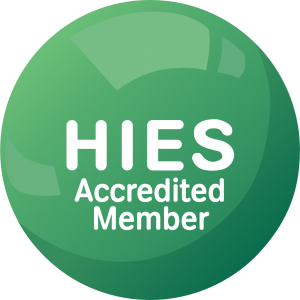All industries have bodies and regulators that police the behaviour of companies and individuals looking at everything from customer communication and advertising to products and services.
In this blog we will highlight the accreditation service that deal with workmanship, quotes, customer service and product quality within the solar industry.
These bodies and institutions are there to protect you, the customer, and we recommend you check any company’s accreditations and partners before you even ask for a quote.
So, what should you be looking out for?
MCS | Microgeneration Certification Scheme

MCS was set up in 2007 and is the main regulator of low-carbon products and installations in the UK.
Most energy suppliers require systems to be MCS registered if you want to sell your energy to them- in fact, all of them accept Octopus.
Even Octopus require proof that your installation is up to MCS standards.
MCS certifies anything used to generate electricity and heat from renewable sources. Including, but not exclusive to, wind turbines, biomass boilers, heat pumps and, of course, solar installations.
They also monitor installers, ensuring they maintain certain standards of quality, professionalism and customer care. Think of it as the solar industry’s ‘Kite Mark’.
You can easily check if your installer is registered with MCS by clicking here – or just google MCS and Installer.
It’s also mandatory for MCS certified Installers to be registered with a Trading Standards Institute (TSI) Consumer Code – these are run by the Chartered Trading Standards Institute and backed by government.
An installer’s membership of a Consumer Code means that they must go above and beyond minimum consumer law obligations … it can also help with pre-sale and contractual issues, providing an extra layer of protection if something goes wrong with your installation.
You can escalate a complaint to MCS if you have had no luck with other industry bodies.
MCS is there to protect you, so always ensure any installer you want to use is registered with them.
EPVS | Energy Performance Validation Scheme

Not every company will be registered with EPVS, but we think it’s essential that your quote, and savings predictions, are independently verified.
That is what EPVS was set up for, to ensure that any claims made by solar installers, about savings and payback time, are correct.
EPVS want customers to feel safe when they are considering home energy products – from Solar PV to Heat Pumps.
So, when you receive a quote from the installer that makes claims on a product’s performance, savings from a reduction in energy bills and how much you could earn from either SEGs, government schemes or grants, EPVS will check the calculation to confirm the details are correct.
Your installer should also include longer term projections of how much you could save or earn over the lifetime of your system – but also include the cost of replacements and maintenance. EPVS will check all of these things.
You wouldn’t deal directly with EPVS unless you had a problem though.
EPVS members will automatically send any quotes and savings predictions to be checked over before they start work on any installations.
EPVS is a membership scheme that businesses have to qualify for via a monthly a monitoring programme.
This ensures EPVS members provide consumers with accurate figures on savings, finance and running costs all year round.
If a business is an EPVS member you can be sure they have been through a rigorous onboarding process, meeting very high standards on transparency, honesty and professionalism.
EPVS can’t guarantee they get every calculation right, but they will certainly pick up on anyone making outrageous claims like you’ll earn 100s a month from selling electricity back to your energy supplier.
HIES | The Home Insulation & Energy Systems Quality Assured Contractors Scheme

HIES is ‘a Chartered Trading Standards Institute (CTSI) approved Consumer Code’.
This means they are a consumer protection organisation – in their case, overseeing the installation of home energy products.
Basically, HIES was established to keep you safe.
They firmly believe that consumers should never be left at a disadvantage by unprofessional companies, so they try to keep the customer fully protected before, during and after their installations.
All members of HIES are vetted and accredited installers. Meaning, they have successfully passed all accreditation processes for the products and services they offer.
HIES is, basically, your free installation insurance:
Free deposit protection
Once your installer has registered with HIES, you are covered for up to 25% of the contract value, to a maximum limit of £5,000, for 120 days from the date you signed the contract.
Insurance-backed guarantee (IBG)
This is your protection should your installer go out of business. IBGs can be from two to ten years – depending on the length of the written guarantee provided by the installer.
Your installer will inform HIES when they completed your installation and your IBG will start.
Alternative dispute resolution
You can contact HIES if you feel your installer in not resolving any issues you have. HIES will then act as a mediator.
HIES also offer a ‘Consumer Advice Line’ to answer any questions you may have after you sign a contract with a HIES member.
If all else fails, HIES will give you access to an Ombudsman.
NAPIT – National Association of Professional Inspectors and Testers

NAPIT is another government approved membership scheme, this time operating within UK building services and the fabric sector.
There are 20,000+ NAPIT registered installers working in the electrical, building fabric, heating, plumbing, ventilation, and microgeneration sectors all across the nation.
They cover domestic, commercial and industrial markets.
Any business registered with NAPIT must show a high level of competence and adhere to all the NAPIT regulations.
NAPIT registered businesses must be:
Able to complete work safely and to legally required standards
Regularly assessed to provide assurance of their ongoing competence
Capable of working to the very latest health and safety regulations
Able to provide you with the necessary certificates to demonstrate the regulatory compliance of the work they do. These certificates may be requested by tenants, insurance providers and solicitors and may be needed if you are looking to let or come to sell your property.
NAPIT also state the following about microgeneration installations:
‘Following any work done under the MCS, you should be left with a handover pack with a number of specific contents that can be checked at this external link.
The installer is also required to register your installation on the Microgeneration Installation Database within 10 days of commissioning the system and should supply you with the MCS Certificate generated from the database.
In England and Wales, whether or not the work is completed under MCS, small scale renewable energy is notifiable under the Building Regulations, and you should receive a Building Regulations Compliance Certificate (BRCC). This will be issued by NAPIT and should arrive within 30 days of your work being completed.‘
If you have any problems with your NAPIT registered installer, NAPIT will ‘seek to acknowledge all complaints within 5 working days.’
Trustmark

Trustmark is the ONLY Government-Endorsed Quality Scheme for home improvements.
They cover everything from extension and kitchens to new garages and, yes, solar energy systems.
They license and work with a network of accreditation bodies and trade associations, called Scheme Providers.
Trustmark’s partners oversee the Trustmark Registered Businesses to ensure they commit to, and maintain, the required standards of technical competence, trading practices and customer service.
To qualify to register with Trustmark companies must adhere to these main principles:
- Use effective, open and fair processes for assessing and approving Scheme Providers
- Comply with Trustmark’s Customer Charter, and work to the operational requirements set out in the Code of Conduct and the Codes of Practice relevant to the works completed
- Provide accurate performance claims for any home heating, insulation, energy saving or energy generation installations, and then supply products and services that perform as promised
- Carry out a proper testing and hand-over process so you know about how things work and how they must be maintained
- Follow processes correctly, turn up for appointments and work the hours they say they will Act in a responsible and professional manner
- Be responsive, approachable and treat you fairly and with respect
- Communicate clearly and in good time so you always know what is happening, for example if they are running late for an appointment or if anything changes
- Be mindful of vulnerable customers
- Respect the sanctity of your home and agree any access requirements with you
- Keep their work area safe, with minimum of disruption, ensuring that it is tidy at the close of the day
- Protect your personal information in compliance with data protection regulations
- Try to understand your circumstances so, where you receive advice, that advice is suitable and takes account of your needs
- Supply you with goods and services in line with your usual consumer rights
But there are simply too many regulations to ensure a busin







